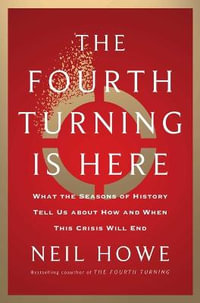Elvis Presley stands tall as perhaps the supreme icon of 20th-century U.S. culture. But he was perceived to be deeply un-American in his early years as his controversial adaptation of rhythm and blues music and gyrating on-stage performances sent shockwaves through Eisenhower's conservative America and far beyond.
This book explores Elvis Presley's global transformation from a teenage rebel figure into one of the U.S.'s major pop-cultural embodiments from a historical perspective. It shows how Elvis's rise was part of an emerging transnational youth culture whose political impact was heavily conditioned by the Cold War. As well as this, the book analyses Elvis's stint as G.I. soldier in West Germany, where he acted as an informal ambassador for the so-called American way of life and was turned into a deeply patriotic figure almost overnight. Yet, it also suggests that Elvis's increasingly synonymous identity with U.S. culture ultimately proved to be a double-edged sword, as the excesses of his superstardom and personal decline seemingly vindicated long-held stereotypes about the allegedly materialistic nature of U.S. society.
Tracing Elvis's story from his unlikely rise in the 1950s right up to his tragic death in August 1977, this book offers a riveting account of changing U.S. identities during the Cold War, shedding fresh light on the powerful role of popular music and consumerism in shaping images of the United States during the cultural struggle between East and West.
About the Author
Mathias Haeussler is Assistant Professor of Modern European History at Regensburg University, Germany, having previously been Lumley Research Fellow at Magdalene College, University of Cambridge, UK. He has held fellowships at the John W. Kluge Center at the Library of Congress and the German Historical Institute in Washington D.C., USA.
Industry Reviews
“A comprehensive and insightful study of Elvis and his reception during the Cold War, when the singer became a global symbol of American youth culture. In his shrewd analysis, Mathias Haeussler is keen to explore what that meant, not only politically, but also for perceptions of American modernity, consumerism, and cultural identity at home and abroad. The book charts Elvis's career from rebellious teenage outsider to his army service in Germany, his Hollywood years, his remarkable comeback in 1968, and his later career in Las Vegas. It makes for absorbing and informative reading in relating the construction of Elvis as cultural icon to the social changes taking place in the USA.”
Derek B. Scott, Professor of Critical Musicology, University of Leeds, UK
“Inventing Elvis is a marvellous work of social, cultural and political history, charting the rise and reinvention of this iconic figure through three decades of Cold War America. By also covering the reception of Elvis internationally, the book expands the narrative to emphasise the transnational significance of this performer. This is a well researched and readable account of one of the great popular culture icons of the 20th century.”
Giles Scott-Smith, Roosevelt Chair in New Diplomatic History, Leiden University, The Netherlands
“Fascinating, innovative and highly readable. Through his extensive research and broad perspective, Mathias Haeussler helps us understand Elvis in a new way as a historical phenomenon.”
David Reynolds, author of America, Empire of Liberty


























